Thousands attend funeral of Kashmir pro-independence leader Syed Ali Geelani
Thousands of people in Islamabad attended funerals in absentia in memory of the iconic Kashmiri pro-independence leader Syed Ali Geelani, who had been under house arrest for a decade. Indian security forces took away his dead body and buried him to prevent fierce public reaction in disputed Kashmir region divided between Pakistan and India.
Kashmiri pro independence leader, Syed Ali Shah Geelani, who passed away this week at the age of 92, was a veteran campaigner against Indian rule, had been under house arrest for well over a decade after leading several pro independence protests.
A pro independence leader who demanded a referendum on whether Kashmir should remain under the control of New Delhi, spent long spells in jail.
The news of his death triggered authorities to beef up security in the area, and shut down Internet services.
Many Kashmiris believe his legacy will live on in the disputed Himalayan region.
He had dedicated his life entirely to the Kashmiri struggle, and he did not bend down, even when others, including some political leaders in Pakistan, were willing to compromise.
Syed Ali Shah Geelani refused to do so. So in that sense his legacy is enormous, he definitely would be missed by the Kashmiri people, especially the youth, although he was 92 years old when he passed away, but he has inspired several generations of Kashmiri youth to continue their struggle.
Zafar Bangash, Institute of Contemporary Islamic Thought
Kashmir has been a flashpoint between nuclear armed neighbors, India and Pakistan, for over seven decades now; the two neighbors have fought several wars over the disputed region.
As the two rivals dig their heels in people in Indian controlled Kashmir face an increasing tough battle for independence.
Muslims in the region have long complained of systematic abuse. There are widespread reports of killings, torture, forced disappearances and sexual violence by Indian forces in Kashmir.
In 2019, after seven decades, India revoked the special status of Kashmir in a bid to control the Muslim majority region more tightly.
The move infuriated Islamabad which condemned it as a clear violation of the United Nations Security Council resolutions.
The dispute over Kashmir goes back to 1947, in August of that year the British began quitting colonial India after many decades. Their departure led to the partition of India, the British drew a line on the map starting an acrimonious rivalry that continues to this day.
Majority Muslim provinces of India form the newly created Pakistan and majority Hindu provinces remained in India.
The ruler of the state of Jammu and Kashmir was given the choice to join India or Pakistan. The resource rich Jammu and Kashmir is a Muslim majority state but its ruler, who was a Hindu, chose to accede to India.
But when it came to Kashmir, which was a predominantly Muslim area, and still is, they, Hindus, or the Indian Congress, basically, violated this rule, and at that time, the British Viceroy, Lord Mountbatten, who also happened to be the Viceroy of India, conspired with the Indian rulers, as well as with the Hindu ruler of Kashmir, even though the majority of the population was Muslim that the British played a dirty role in this.
Zafar Bangash, Institute of Contemporary Islamic Thought
The events led to the first war between India and Pakistan, the hostilities left over one thousand Indians and more than six thousand Pakistani forces dead, by the end of the war in 1948 Indian forces held two thirds of Kashmir and Pakistan had the smaller northern segment.
The two rivals have fought several wars over the region, Indian and Pakistani forces have engaged in numerous cases of deadly crashes, across the Line of Control.
Kashmir is widely considered as one of the most militarized and dangerous zones in the world.
The UN Security Council has called for a referendum on the status of the region, but that has never happened.
The mountainous Himalayan region has enormous strategic importance; the geopolitical ambitions of India and Pakistan seem to be playing a major role in prolonging the deadlock and suffering of the people of Kashmir.
Iran knows where Netanyahu convenes his meetings: Ex-IRGC chief
‘Law of jungle’: China says Israeli-US aggression against Iran must stop
Iran says committed to regional security; retaliatory attacks only target Israel, US assets
'Blatant war crime': Iran denounces US-Israel strikes on Gandhi hospital in Tehran
IRGC spox: 650 casualties for US military in two days as Iran missiles force aircraft carrier to fle
Tehran warns of false-flag operations, says Israel ‘undoubtedly’ seeking to widen war
New wave of attacks devastates key US base in Bahrain as Iran strikes back
Melania Trump chairs UN children's meeting as Iran buries kids killed in US-Israeli attack


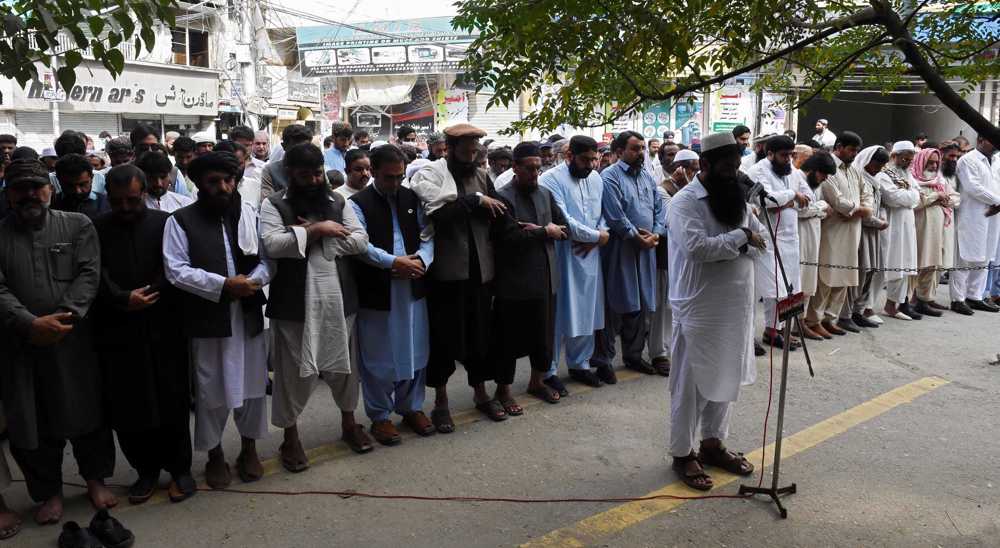
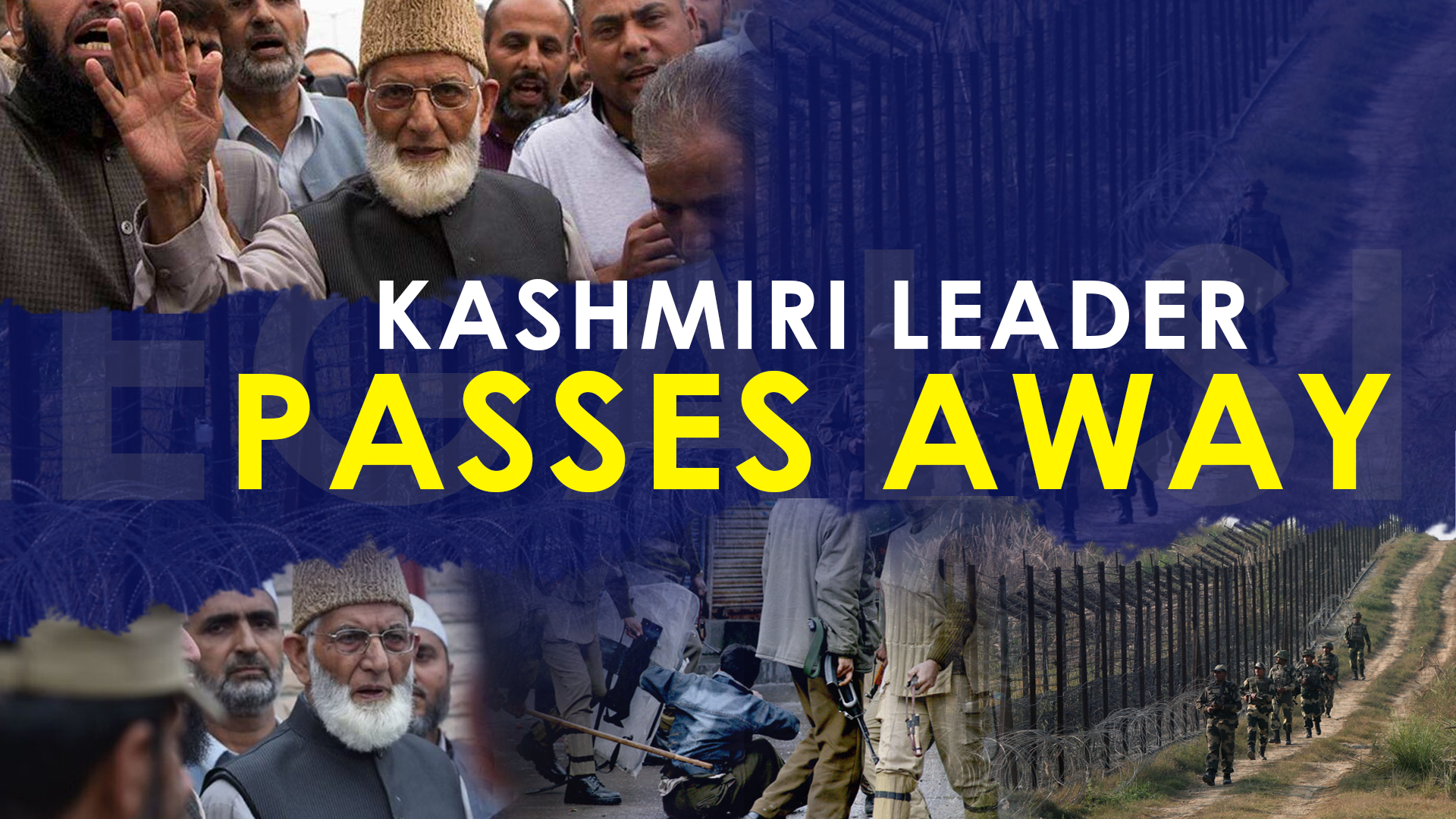
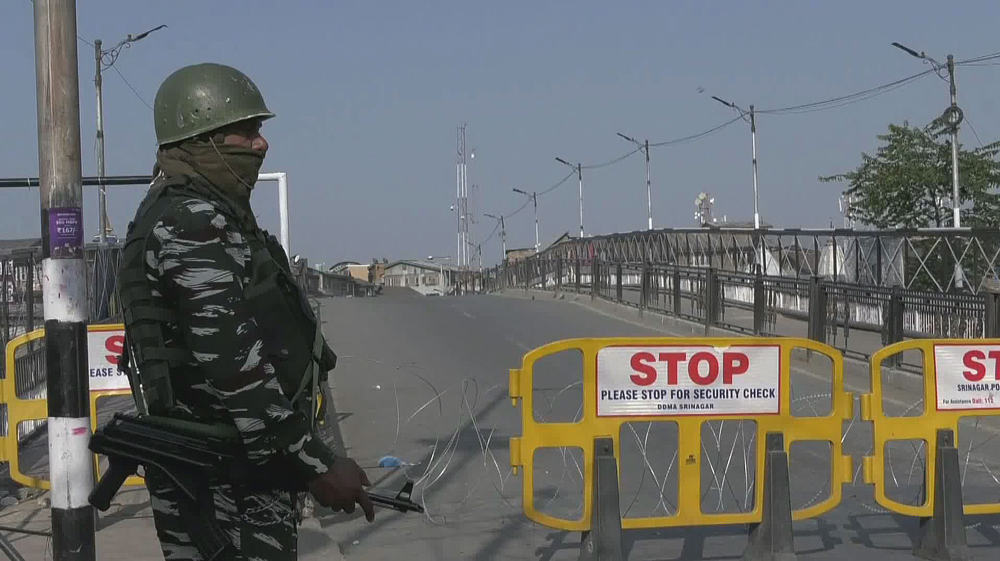
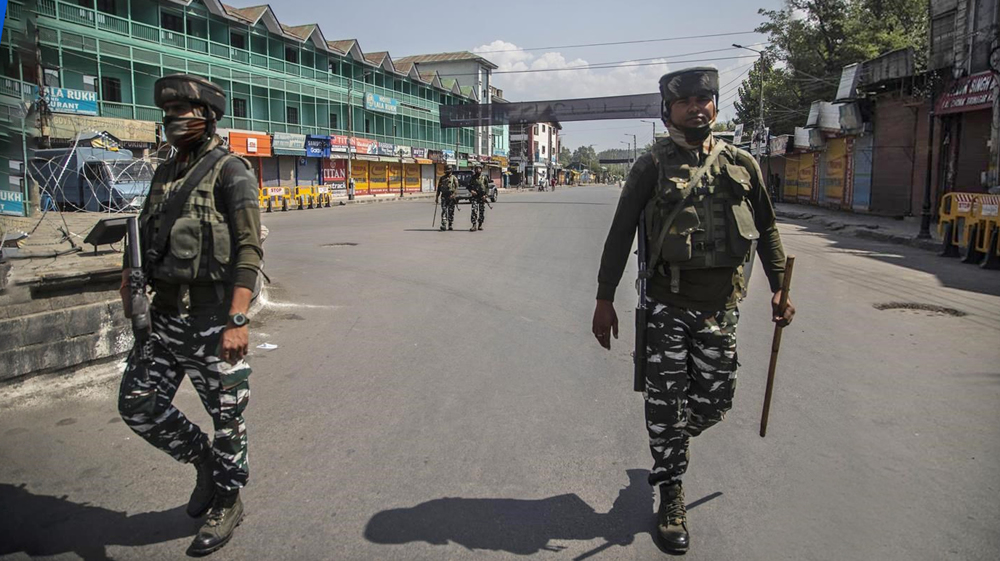
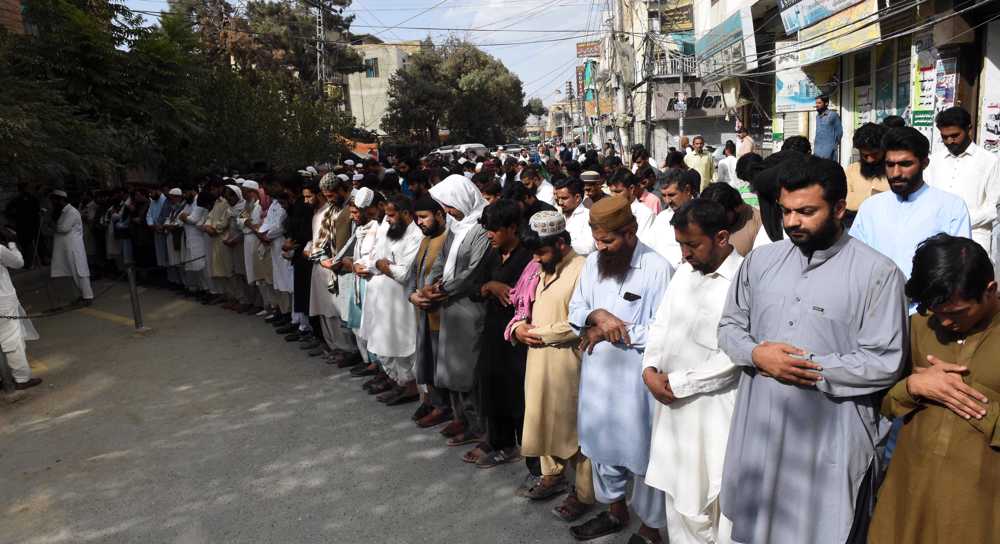
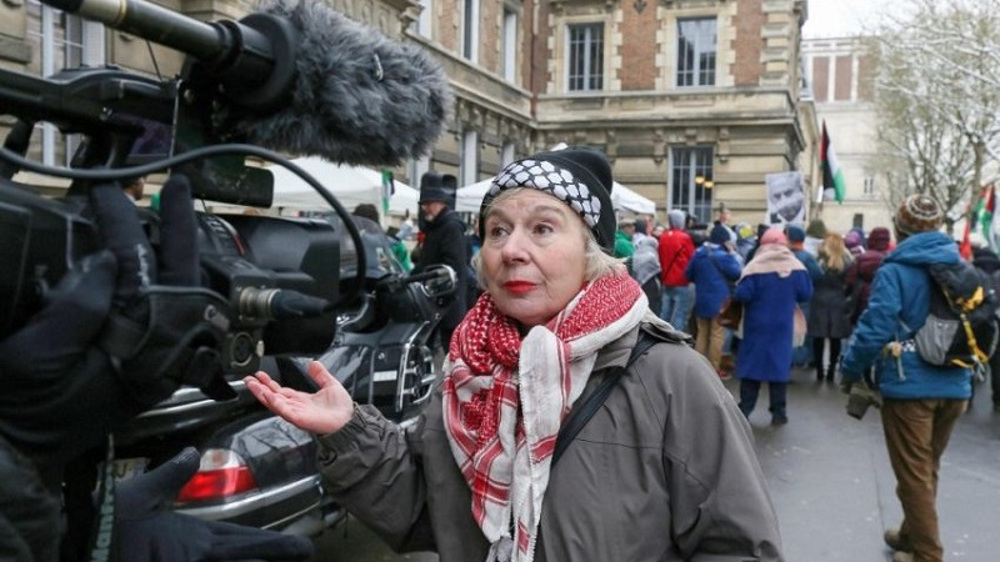
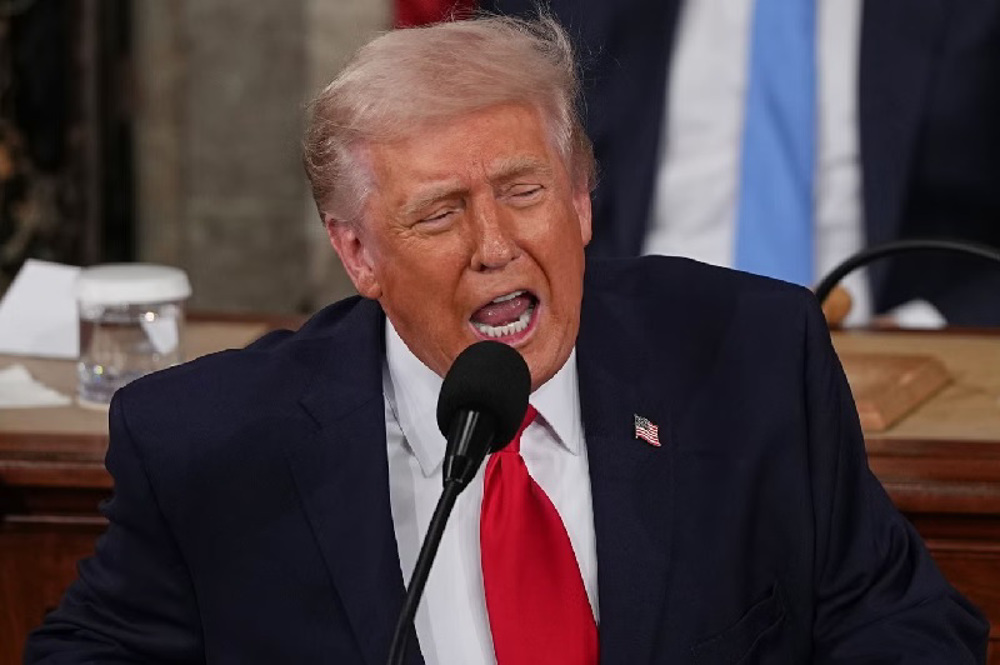
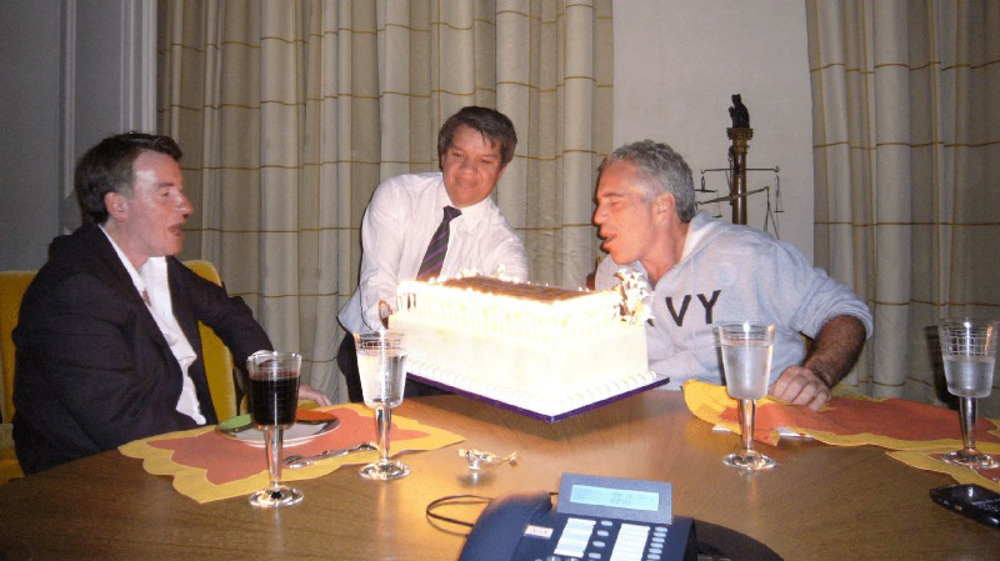




 This makes it easy to access the Press TV website
This makes it easy to access the Press TV website